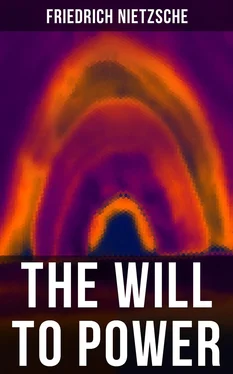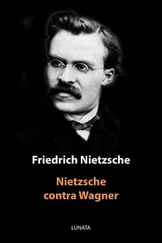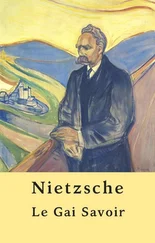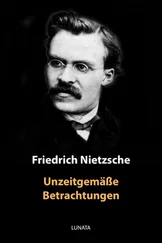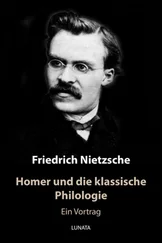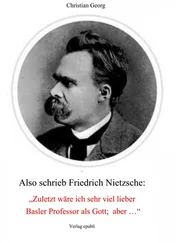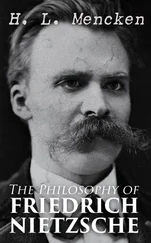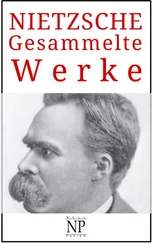That they change their character, shed their skins, and blot out their past.
It means that they should cease from differentiating themselves from others.
It means that they are getting to resemble each other in their needs and aspirations—or, more exactly, that they are declining....
It means that the will to one kind of morality is merely the tyranny of the particular species, which is adapted to that kind of morality, over other species: it means a process of annihilation or general levelling in favour of the prevailing species (whether it be to render the non-prevailing species harmless, or to exploit them); the "Abolition of Slavery"—a so-called tribute to "human dignity"; in truth, the annihilation of a fundamentally different species (the undermining of its values and its happiness).
The qualities which constitute the strength of an opposing race or class are declared to be the most evil and pernicious things it has: for by means of them it may be harmful to us (its virtues are slandered and rechristened).
When a man or a people harm us, their action constitutes an objection against them: but from their point of view we are desirable, because we are such as can be useful to them.
The insistence upon spreading "humaneness" (which guilelessly starts out with the assumption that it is in possession of the formula "What is human") is all humbug, beneath the cover of which a certain definite type of man strives to attain to power: or, more precisely, a very particular kind of instinct—the gregarious instinct. "The equality of men": this is what lies concealed behind the tendency of making ever more and more men alike as men.
The "interested nature" of the morality of ordinary people. (The trick was to elevate the great passions for power and property to the positions of protectors of virtue.)
To what extent do all kinds of business men and money-grabbers—all those who give and take credit—find it necessary to promote the levelling of all characters and notions of value? the commerce and the exchange of the world leads to, and almost purchases, virtue.
The State exercises the same influence, as does also any sort of ruling power at the head of officials and soldiers; science acts in the same way, in order that it may work in security and economise its forces. And the priesthood does the same.
Communal morality is thus promoted here, because it is advantageous; and, in order to make it triumph, war and violence are waged against immorality—with what "right"? Without any right whatsoever; but in accordance with the instinct of self-preservation. The same classes avail themselves of immorality when it serves their purpose to do so.
316.
Observe the hypocritical colour which all civil institutions are painted, just as if they were the offshoots of morality —for instance: marriage, work, calling, patriotism, the family, order, and rights. But as they were all established in favour of the most mediocre type of man, to protect him from exceptions and the need of exceptions, one must not be surprised to find them sown with lies.
317.
Virtue must be defended against its preachers: they are its worst enemies. For they teach virtue as an ideal for all ; they divest virtue of the charm which consists in its rareness, its inimitableness, its exceptional and non-average character—that is to say, of its aristocratic charm. A stand must also be made against those embittered idealists who eagerly tap all pots and are satisfied to hear them ring hollow: what ingenuousness—to demand great and rare things, and then to declare, with anger and contempt of one's fellows, that they do not exist!—It is obvious, for instance, that a marriage is worth only as much as those are worth whom it joins—that is to say, that on the whole it is something wretched and indecent: no priest or registrar can make anything else of it.
Virtue 6 has all the instincts of the average man against it: it is not profitable, it is not prudent, and it isolates. It is related to passion, and not very accessible to reason; it spoils the character, the head, and the senses—always, of course, subject to the medium standard of men; it provokes hostility towards order, and towards the lies which are concealed beneath all order, all institutions, and all reality—when seen in the light of its pernicious influence upon others, it is the worst of vices .
I recognise virtue in that: (1) it does not insist upon being recognised; (2) it does not presuppose the existence of virtue everywhere, but precisely something else; (3) it does not suffer from the absence of virtue, but regards it rather as a relation of perspective which throws virtue into relief: it does not proclaim itself; (4) it makes no propaganda; (5) it allows no one to pose as judge because it is always a personal virtue; (6) it does precisely what is generally forbidden : virtue as I understand it is the actual vetitum within all gregarious legislation; (7) in short, I recognise virtue in that it is in the Renaissance style— virtù —free from all moralic acid....
318.
In the first place7 Messrs. Virtue-mongers, you have no superiority over us; we should like to make you take modesty a little more to heart: it is wretched personal interests and prudence which suggest your virtue to you. And if you had more strength and courage in your bodies you would not lower yourselves thus to the level of virtuous nonentities. You make what you can of yourselves: partly what you are obliged to make,—that is to say, what your circumstances force you to make, —partly what suits your pleasure and seems useful to you. But if you do only what is in keeping with your inclinations, or what necessity exacts from you,59 or what is useful to you, you ought neither to praise yourselves nor let others praise you !... One is a thoroughly puny kind of man when one is only virtuous: nothing should mislead you in this regard! Men who have to be considered at all, were never such donkeys of virtue: their inmost instinct, that which determined their quantum of power, did not find its reckoning thus: whereas with your minimum amount of power nothing can seem more full of wisdom to you than virtue. But the multitude are on your side: and because you tyrannise over us, we shall fight you....
319.
A virtuous man is of a lower species because, in the first place, he has no "personality," but acquires his value by conforming with a certain human scheme which has been once and for ever fixed. He has no independent value: he may be compared; he has his equals, he must not be an individual.
Reckoning up the qualities of the good man, why is it they appear pleasant to us? Because they urge us neither to war, to mistrust, to caution, to the accumulating of forces, nor to severity: our laziness, our good nature, and our levity, have a good time. This, our feeling of well-being, is what we project into the good man in the form of a quality, in the form of a valuable possession.
320.
Under certain circumstances, virtue is merely a venerable form of stupidity: who could blame you for it? And this form of virtue has not been outlived even to-day. A sort of honest peasant-simplicity, which is possible, however, in all classes of society, and which one cannot meet with anything else than a respectful smile, still thinks to-day that everything is in good hands—that is to say, in "God's hands": and when it supports this proposition with that same modest assurance as that with which it would assert that two and two are four, we others naturally refrain from contradiction.
Читать дальше
